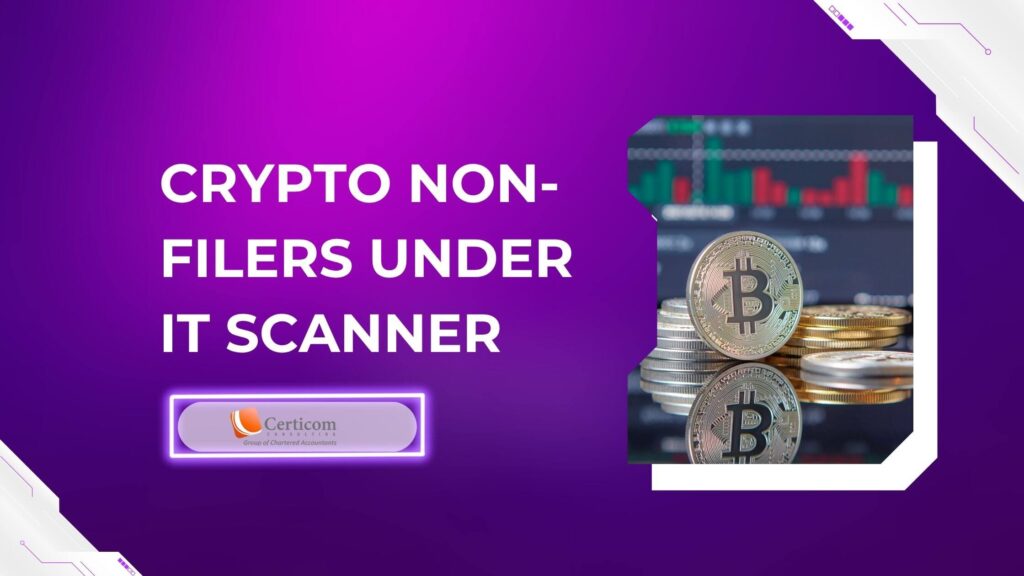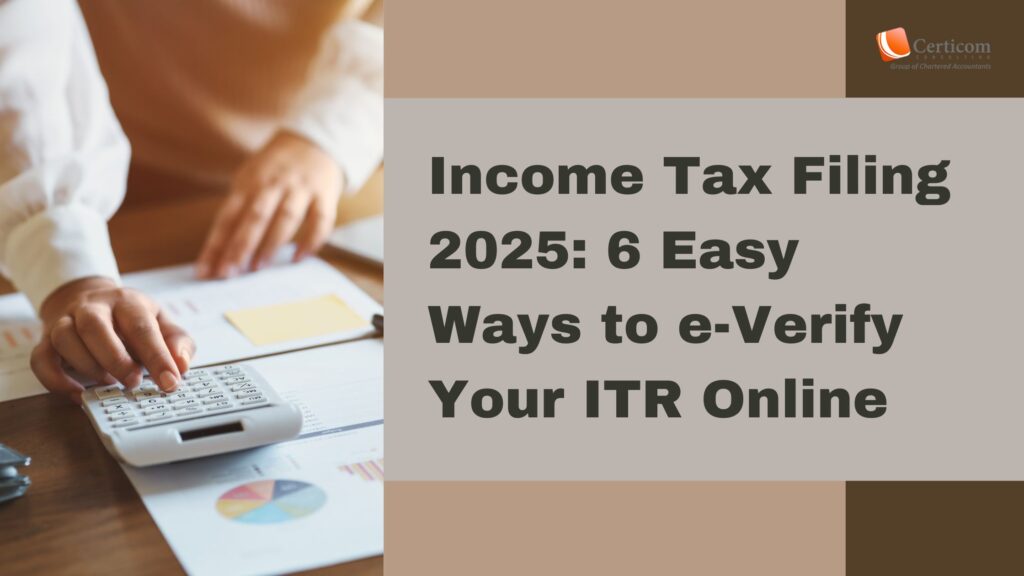Crypto Non-Filers Under IT Scanner

As the digital asset space gains momentum in India, so does the scrutiny by tax authorities. The Income Tax Department (ITD) has intensified its efforts to ensure compliance among cryptocurrency investors and traders, particularly those who have not reported their earnings from Virtual Digital Assets (VDAs) in their Income Tax Returns (ITRs).
Massive Compliance Push: I-T Department Reaches Out to Crypto Investors
In a recent campaign, the ITD has reached out to thousands of individuals suspected of omitting cryptocurrency transactions in their ITRs. These communications are part of the government’s broader “NUDGE” initiative, aimed at encouraging voluntary compliance while avoiding intrusive action. The current phase specifically targets Assessment Years 2023–24 and 2024–25.
Backed by robust data analytics and inputs from crypto exchanges, the department is identifying mismatches between declared income and TDS returns, raising red flags around possible underreporting or evasion.

A Snapshot of India’s Crypto Tax Regime
India has implemented one of the most clear-cut taxation systems for VDAs. Key provisions include:
Flat 30% tax on income from the transfer of VDAs, including cryptocurrencies, NFTs, and other digital tokens—applicable regardless of whether the gains are business income or capital gains.
1% Tax Deducted at Source (TDS) on transactions exceeding specified thresholds. This TDS is deducted upfront, aiding the government in tracking crypto flows and ensuring tax is collected in real time.
No set-off of losses from VDAs against other income—making the tax regime more stringent.
Gifts of VDAs valued over ₹50,000 are taxable in the hands of the recipient.
These measures were introduced to bring clarity and accountability to an otherwise unregulated digital space and ensure that tax compliance is upheld.
Trust-Based Nudges Over Enforcement: A Balanced Approach
The ITD’s outreach is not intended to penalize taxpayers immediately but to guide them toward voluntary compliance. Taxpayers who may have unintentionally failed to report VDA income are encouraged to file updated returns and make the necessary disclosures before enforcement actions or scrutiny proceedings are initiated.
This campaign mirrors earlier efforts by the department to target foreign asset non-disclosures and fraudulent deductions. The consistent message is clear: honest compliance is expected and rewarded under the “trust taxpayer first” philosophy.
Why This Matters Now
The digital asset market in India is growing rapidly. With increased retail participation and the rise of NFTs, DeFi tokens, and other digital assets, the government is focused on curbing money laundering, tax evasion, and the flow of unaccounted wealth. The current taxation model ensures that crypto investors contribute fairly to the revenue system, just like any other asset class.

Investor Advisory: Act Before It’s Too Late
If you’ve traded, invested in, or received VDAs in the last two financial years, now is the time to:
Review your transaction history
Cross-check TDS entries reported by exchanges
Update or revise your Income Tax Returns, if needed
Failing to comply can lead to penalties, interest, and even scrutiny proceedings in certain cases.
Read More: Have You Reported Your Foreign Assets in Your Income Tax Return?
Conclusion
The message from the Income Tax Department is loud and clear: crypto is not beyond the reach of tax laws. As regulatory clarity increases and data-sharing mechanisms become more robust, non-compliance will become increasingly risky. Investors are advised to stay informed, stay compliant, and treat VDA transactions like any other taxable income stream.
Related Post
Income Tax Filing 2025: 6 Easy Ways to e-Verify Your ITR Online
TDS Return Form 26Q: Due Dates, Applicability & Related Forms
Book A One To One Consultation Now For FREE
How can we help? *



